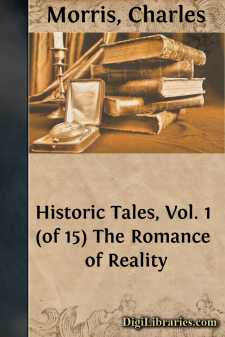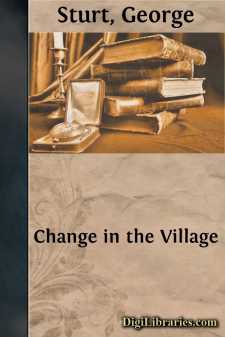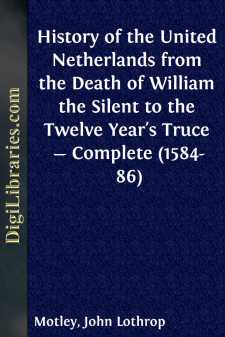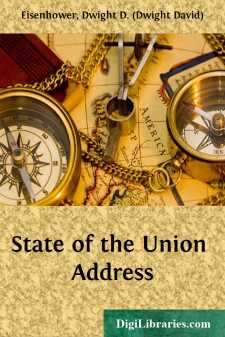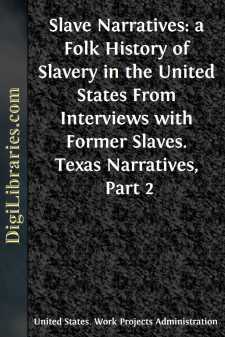History
- Africa 30
- Americas (North Central South West Indies) 50
- Ancient 68
- Asia 58
- Australia & New Zealand 8
- Canada 41
- Caribbean & West Indies 1
- Civilization 20
- Eastern Europe 12
- Europe 310
- Expeditions & Discoveries 60
- General 77
- Historical Geography 1
- Jewish 9
- Latin America 3
- Medieval 8
- Middle East 14
- Military 248
- Revolutionary 8
- Study & Teaching 5
- United States 353
- Western Europe 56
- World 13
History Books
Sort by:
by:
John Pinkerton
In the days of Plato, imagination found its way, before the mariners, to a new world across the Atlantic, and fabled an Atlantis where America now stands. In the days of Francis Bacon, imagination of the English found its way to the great Southern Continent before the Portuguese or Dutch sailors had sight of it, and it was the home of those wise students of God and nature to whom Bacon gave his New...
more...
CURIOUS ADVERTISEMENTS. Among the mass of advertisements that have appeared from time to time in newspapers are to be found some which are very quaint and curious. Such are not, in all cases, intended by the writers to be so; but they sound so, especially to those persons who have an ear for strange or humorous things. Sometimes, indeed, it is the intention of the writers to attract particular notice...
more...
by:
Charles Morris
VINELAND AND THE VIKINGS. The year 1000 A.D. was one of strange history. Its advent threw the people of Europe into a state of mortal terror. Ten centuries had passed since the birth of Christ. The world was about to come to an end. Such was the general belief. How it was to reach its end,—whether by fire, water, or some other agent of ruin,—the prophets of disaster did not say, nor did people...
more...
There is sorrow in Beechenbrook Cottage; the dayHas been bright with the earliest glory of May;The blue of the sky is as tender a blueAs ever the sunshine came shimmering through:The songs of the birds and the hum of the bees,As they merrily dart in and out of the trees,—The blooms of the orchard, as sifting its snows,It mingles its odors with hawthorn and rose,—The voice of the brook, as it lapses...
more...
by:
George Sturt
THE VILLAGE If one were to be very strict, I suppose it would be wrong to give the name of "village" to the parish dealt with in these chapters, because your true village should have a sort of corporate history of its own, and this one can boast nothing of the kind. It clusters round no central green; no squire ever lived in it; until some thirty years ago it was without a resident parson; its...
more...
PREFACE. The indulgence with which the History of the Rise of the Dutch Republic was received has encouraged me to prosecute my task with renewed industry. A single word seems necessary to explain the somewhat increased proportions which the present work has assumed over the original design. The intimate connection which was formed between the Kingdom of England and the Republic of Holland, immediately...
more...
LITERARY CURIOSITIES. The following humorous lines well describe the difficulty that editors find in pleasing the public. They are expected to know everything, and to be able to satisfy all tastes and capacities. No imperfections can be excused in conductors of newspapers; they are not even allowed to be unfortunate. THE EDITOR.That editor who wills to please,Must humbly crawl upon his knees,And kiss...
more...
Mr. President, Mr. Speaker, Members of the Eighty-third Congress: I welcome the honor of appearing before you to deliver my first message to the Congress. It is manifestly the joint purpose of the congressional leadership and of this administration to justify the summons to governmental responsibility issued last November by the American people. The grand labors of this leadership will involve:...
more...
by:
Oswald Boelcke
An unassuming book, still one of those which grip the reader from beginning to end. When the author started to write his daily impressions and adventures, it was to keep in touch with his people, to quiet those who feared for his safety every moment, and at the same time to give them a clear idea of his life. Without boasting, modestly and naturally, he describes the adventures of an aviator in the...
more...
"I's birthed below Nacogdoches, and dey tells me it am on March 19th, in 1852. My mammy had some kind of paper what say dat. But I don't know my master, 'cause when I's two he done give me to Marse Frank Sparks and he brung me to Bosqueville. Dat sizeable place dem days. My mammy come 'bout a month after, 'cause Marse Frank, he say I's too much trouble without my...
more...




